Interview with the president of the “Daniele Chianelli” Committee for Life. A chat that goes beyond the person that many know, a glimpse of his life as a young man between passions and memories.
Everyone knows who Franco Chianelli is, president of the Daniele Chianelli Committee for Life, but few know Franco the man, who as a young man played and played bowls, who was very attached to his father and who today dreams of opening a garden on the roof of the hospital in Perugia. With his wife Luciana Cardinali and 18 other parents – with whom he had shared the pain of his children’s illness – he founded the Daniele Chianelli Committee for Life on October 26, 1990 in memory of his 10-year-old son who died, a few months earlier, due to leukemia.
In these 34 years, many projects have been realized and carried forward by the Committee: the jewel in the crown is the residence adjacent to the Santa Maria delle Misericordia hospital (Perugia), with 50 apartments equipped with all comforts. But not only that. He contributed to the creation of the CREO (Centro di Ricerca Hemato-Oncologico) and the Andrea Fortunato Transplant Center; he takes care of the social and psychological support and assistance of patients (children and adults) hospitalized in the Hematology and Onco-hematology department, as well as providing global assistance to families throughout the course of the disease. In 2017, together with Luciana, he received from President Sergio Mattarella, on behalf of the Committee, the recognition of Commander of the Order of Merit of the Italian Republic: an honor that adds to the many received over the years. This long chat he had with us outlined a nice, helpful and genuine man – with that touch of Perugian dialect that certainly doesn’t hurt. He remembered his childhood, Daniele and the stories that touched him most over the years.
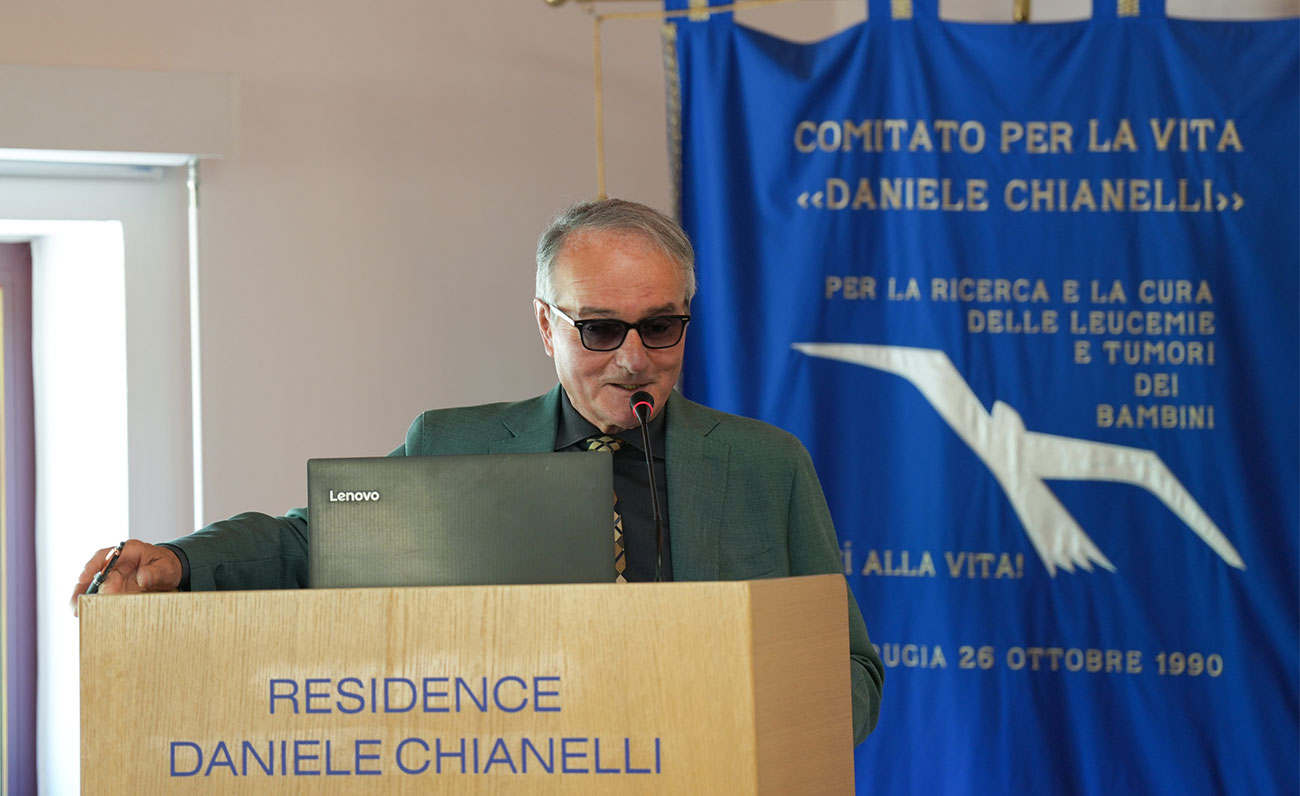
Franco, what is your relationship with Umbria?
I feel very Umbrian. Being born along the banks of the Tiber (in Ponte San Giovanni-Perugia) means that I am also Etruscan. I must say that I have a good relationship with the Umbrians and I want to thank them because, it is also thanks to their help that in these years we have been able to build two residences, a part of CREO and the Andrea Fortunato Transplant Center. Their contribution has been, and still is today, fundamental; many of them participate in the events we organize, in short they love us and we love them.
Who was Franco before becoming the president of the Chianelli Committee?
At 10 years old I made my debut as a musician with a drum kit, an accordion and a clarinet, that’s how it worked at the time! I played until I got married. Then I played bowls and got good results: I got to Serie A and I placed third in the Italian championship – of course, if I had come first it would have been better! (laughs). Then, I played football in the uncultivated fields of Ponte San Giovanni and Balanzano.
Do you still play bowls?
Today I don’t have much time, I’m busy with the association, but I must say that the education I received from my father meant that, since I was little, I thought of others: for example, I donated half of the money I won playing bowls to the Opera Don Guanella in Perugia.
What are your hobbies today?
Lately my passion has been all about agritourism, the countryside and animal breeding: I make wine, I grow vegetables and fruit even if my number one vocation is always helping people.
Has helping others been rooted in you since childhood?
Yes. As I was saying, I had a great lesson from my father. Now I’ll tell you a story: he was a pork butcher and when I was 9/10 years old he took me to the peasant families to work the meat, I helped him make the sausages. He had a black mare with a white star on her forehead and above her, with the black hammer, he looked like Zorro. He was a man with a good heart and what he brought home (for his work he was not paid with money but with other products) he shared with his brothers and other relatives. My mother, however, got angry and said to him: “Lucky, you work so much and always come back late, what they give you as compensation, keep it for us and for your children”, but he replied: “Onè (her name was Onelia) don’t worry, I know what I have to do. What I bring back is for everyone!”. Well, these exchanges between my parents were real lessons that I have carried within me for my whole life. I loved my father very much and, when he died after being hit by a car (I was 16), it was a hard blow for me, I even had to stop studying to be a surveyor to go to work.
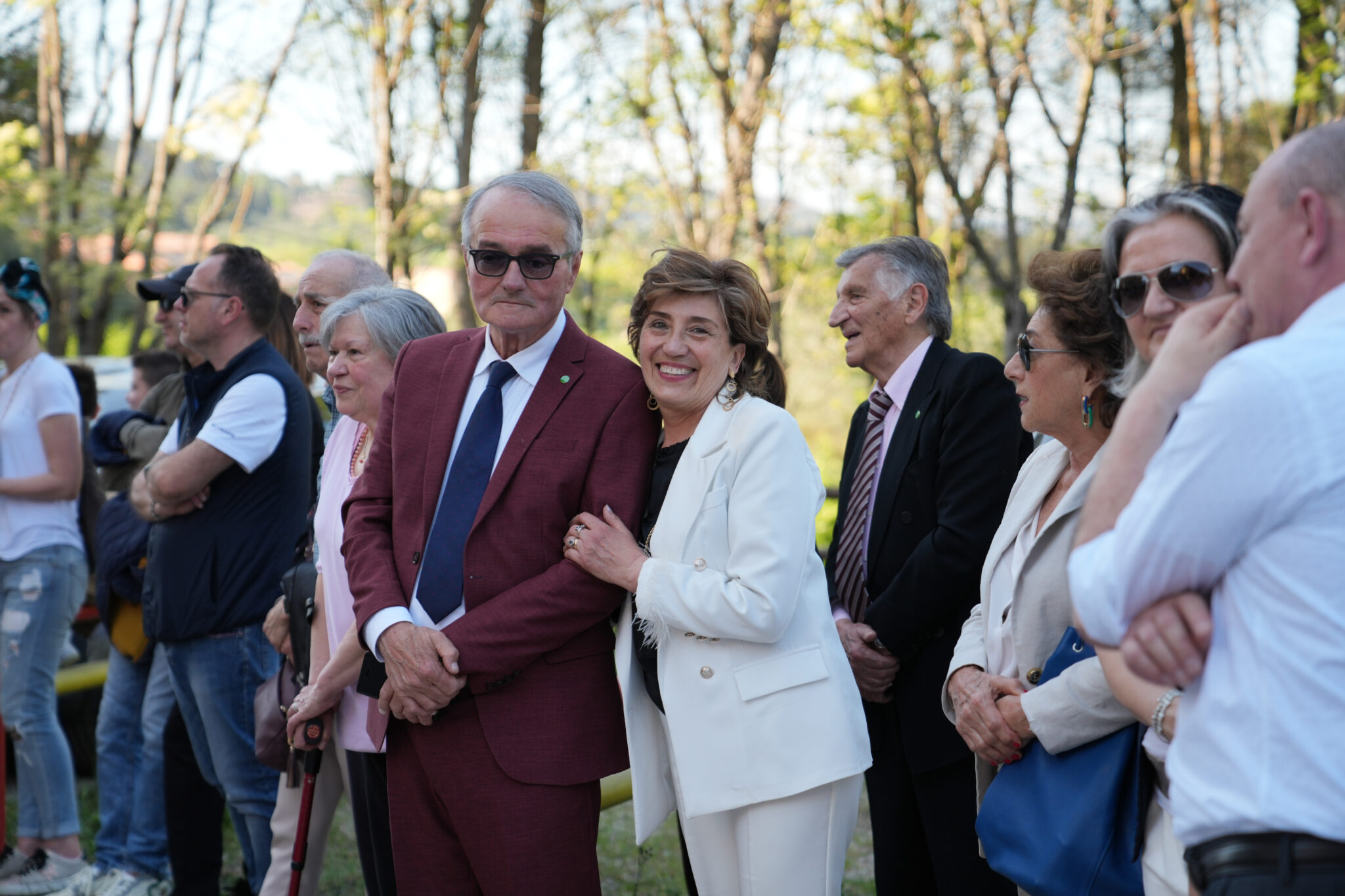
I read that he owned a hardware store in Ponte San Giovanni: do you miss that job?
No, but there is a reason. I rented the hardware store because I no longer had the strength to go into that warehouse: Daniele helped me in the shop and, after his death, I saw him moving between the shelves. I couldn’t do it, I never went in again. I retired to the countryside and created an organic farm in the municipality of Gubbio, in the Alta Valle del Chiascio.
What kind of child was Daniele?
He was a very intelligent, good and kind child. During his illness, he went back to school for a while and, even though he was weak, when there were skirmishes between his classmates he would intervene to defend one or the other. He had this character. In the hospital, in the last days of his life, if he heard children crying he would go to see how they were and ask about their health. He was always an altruistic child.
So he would certainly be happy with what you have done in his name…
He will be more than happy. None of us would have ever imagined that one day we would be able to achieve something so big to help families who come from far away to be treated in Perugia.
Where do they come from?
From all over Umbria, from different parts of Italy – even from the North – and from abroad: the transplant center of the Perugia Hospital is a true excellence and has international relevance.
Do you only deal with onco-hematological patients?
No. We welcome all children with cancer, not just hematological ones. While, as far as adults are concerned, only those affected by blood tumors: for solid tumors there are other associations that offer support, but if necessary and perhaps we have some free apartments, we also host cancer patients, those who need dialysis or those who come from outside the region and at that moment have a relative in hospital. When we have space we are open to everyone. We ask for nothing in return, those who can afford it can make us an offering.
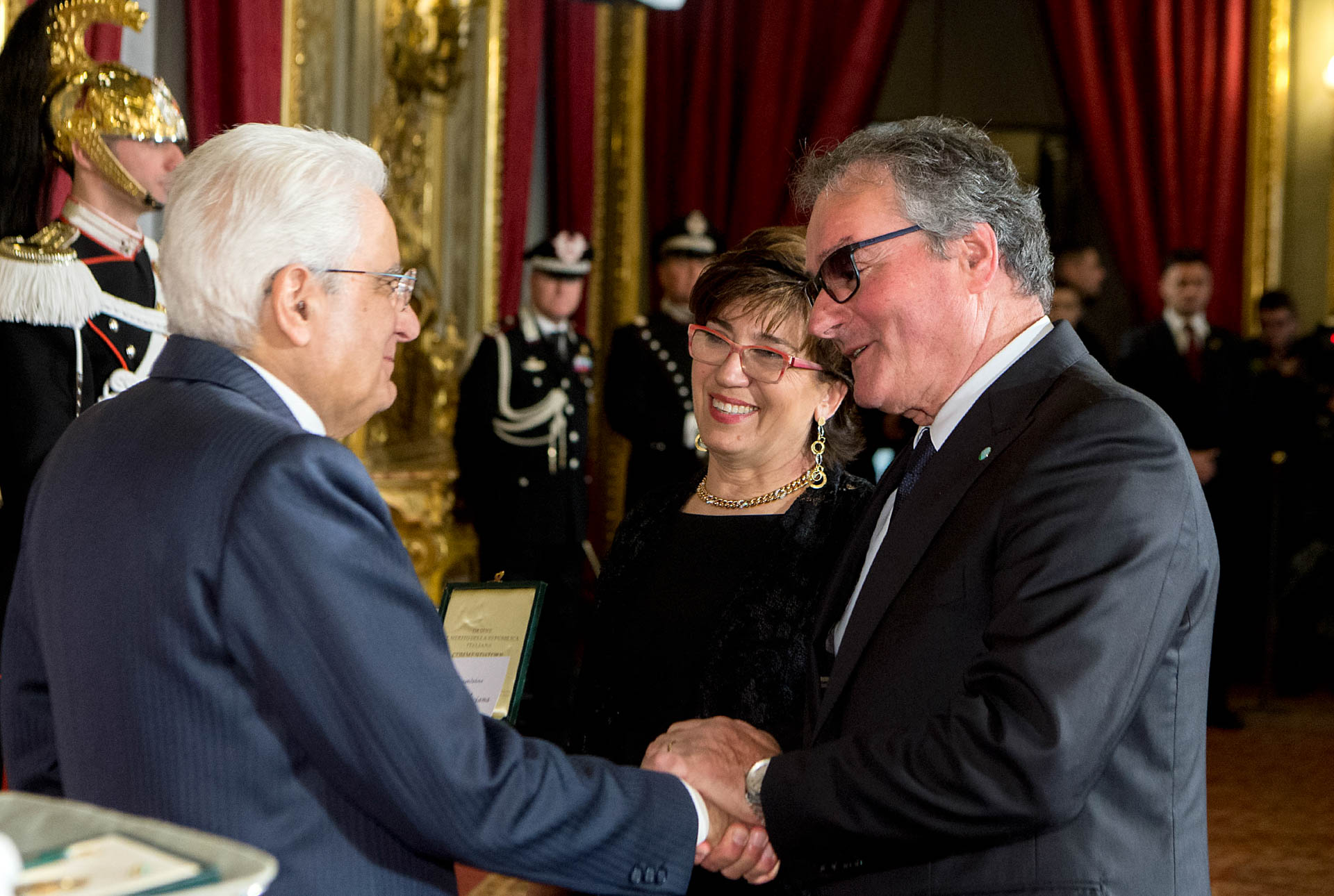
Tell us what it was like to receive the honor of Commander of Merit of the Republic from President Sergio Mattarella at the Quirinale. What did you say to each other?
I have a wonderful relationship with President Mattarella. I write to him at Christmas and Easter and he always responds; four of us deciphered the last note he sent me, we couldn’t understand his handwriting (laughs)! This makes it clear that he responds in his own hand. We met in 2016 when he came to visit us at the residence; we had a long chat, he met the patients and he really appreciated our work and the synergy with the institutions, the University and the world of research. He said that we are: “a model to export and an example for others”. Then, after a week, my wife and I received the invitation from the Quirinale and the nomination of Commanders of the Order of Merit of the Italian Republic. On that occasion too, there was an exchange of words. You might think that one of his close collaborators approached us and said: “The President and I often remember the day we spent in Perugia at the Chianelli Center”. Hearing these words made me very happy.
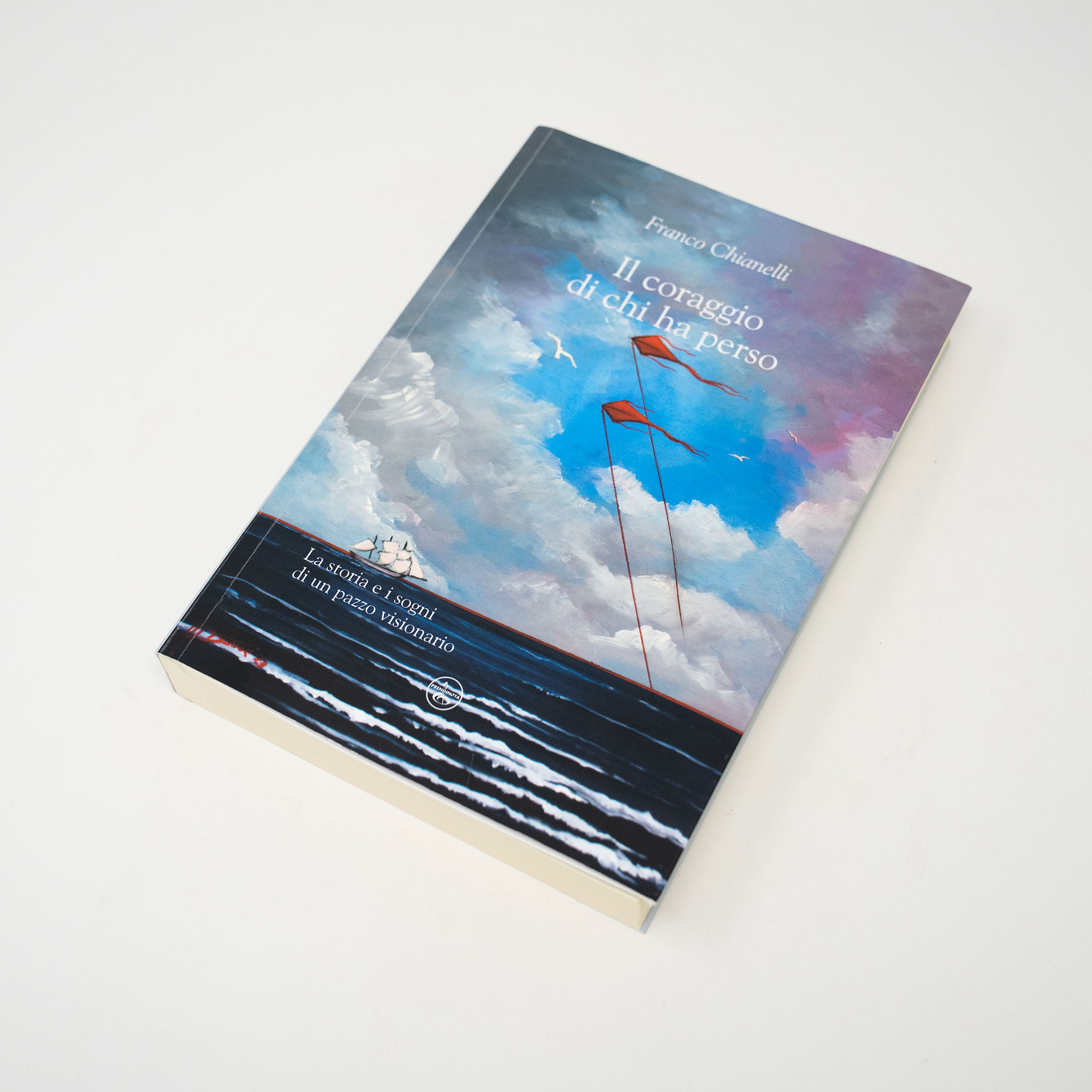
In the book “Il coraggio di chi ha perde. La storia e i sogni di un pazzo visionario” (Prendinota editore) you tell the story of the Committee. But do you feel like a “crazy visionary”?
I’ll tell you how the story of the crazy visionary was born. On the occasion of the 25th anniversary of the Committee, Professor Cristina Mecucci in her speech defined me and Professor Massimo Fabrizio Martelli as two “crazy visionaries”. He because he was the first in the world to extend blood stem cell transplants from only partially compatible family donors, I because I contributed to the construction of the Andrea Fortunato Transplant Center (a hospitalization area intended for transplants and the treatment of acute pathologies, including 40 rooms. Area later completed by the Region), I created the Daniele Chianelli residence and built part of the CREO (Hemato-Oncology Research Center). Being compared to Professor Martelli was a great compliment. I admit that I am a little crazy: in 2020, in the midst of Covid, I took out a mortgage of four million euros to expand the residence. Well, that takes a lot of courage! The then Umbria Health Councilor, Nadia Antonini, also told me that I was crazy when I presented her with the project for the residence, the CREO and the hematology plan. We also wrote it in the book.
You wanted to title the book only: “The dreams of a crazy visionary”. It was your daughter who made you add “The courage of those who have lost”…
Yes, she suggested that I add this sentence. I then brought the proposal to the assembly and everyone (except me and another person) voted for this title. I had to give up! (laughs).
The loss you are referring to is that of Daniele?
Yes. Losing a child is something indescribable.
Don’t you feel like a loser?
Absolutely not. We have made dreams that seemed impossible come true.
And speaking of dreams, it all started 34 years ago and today, with the new expansion, the residence has 50 apartments with every comfort. What are your other dreams?
I would like to create a garden on the roof of the hospital where oncology and hematology patients can get some fresh air and enjoy the view in complete safety and in a sterile environment. Furthermore, I would like to ensure that there is home care, especially for children – with doctors, nurses and a psychologist – so that they can be cared for at home and provide support to their families. We do it occasionally, but we would like this activity to be increased. We have an exceptional and multidisciplinary group with psychologists, music therapists, therapists, physiotherapists, social workers, entertainers and native-speaking cultural mediators for comprehensive protection of the patient and his family.
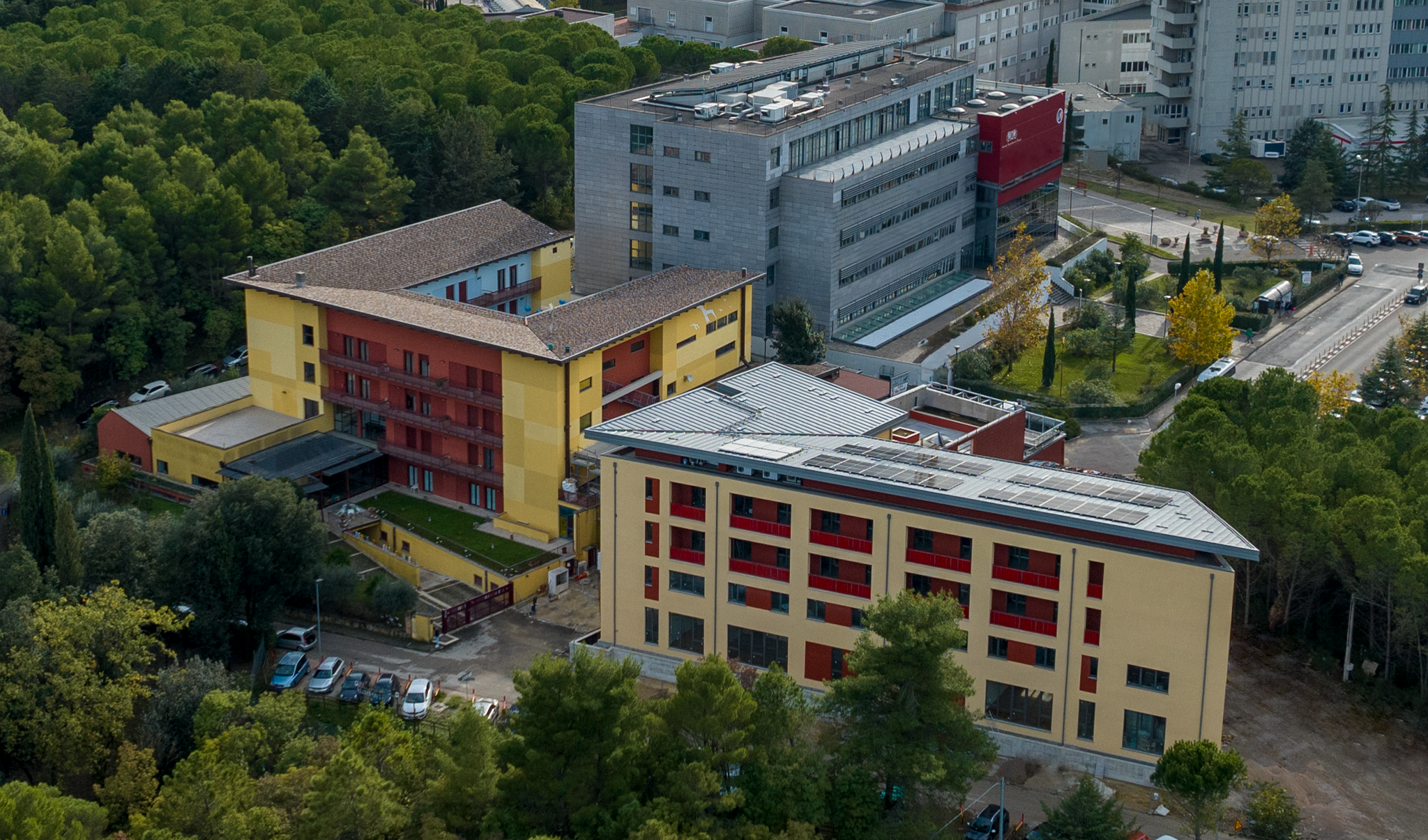
There are so many stories of patients who have passed through Chianelli: is there one that you have not forgotten and that for some reason often comes to mind?
There are many, but the story that left a deep mark on me, and also on Cardinal Bassetti, is that of a family who came to Perugia from Abruzzo with a 12-year-old son suffering from terminal leukemia. This family had already suffered a serious loss: the eighteen-year-old brother had drowned in the swimming pool during a party. When they arrived in Perugia, the mother was three months pregnant and could not care for the boy due to the radiation, so the father was responsible for caring for him, but the family wanted him to return to Abruzzo to work (they were a peasant family) and pushed for the mother to have an abortion so she could take care of the sick little boy. I got angry and convinced the husband to stay to care for the son, so that the wife could carry the pregnancy to term. Abortion would have destroyed this family once and for all: one child had died and another had very little chance of survival. That’s how Benedetta was born, who today is a young girl and plays the accordion; I often see her photos on social media. When Benedetta was three months old, we organized the baptism and confirmation of her brother, to whom I was godfather, in the residence. The then bishop Bassetti came to officiate and it was a beautiful and emotional ceremony; the boy had fun, laughed and joked. It was just a beautiful day, even though we all knew he only had a few days to live: we were smiling, but our hearts were full of pain. Sick children never think they are about to die, or at least they don’t let on. After 20 days they sent him home because there was nothing left to do, and shortly after he left us.
These stories on a human level are so rewarding…
Yes, it’s true.
Is it true that the choice of the symbol was the work of Maestro Franco Venanti? Why the seagull?
Maestro Venanti decided. We needed a logo for the association and through acquaintances we went to his studio – it was full of papers, scraps of paper and paintings everywhere – we gave him a quick presentation and asked what we wanted. He looked at us, thought for a while, then took a blue card, a white sheet of paper and scissors, cut out a seagull and stuck it on the blue card: “I think this could be good, it’s a symbol that flies, it will protect you and help you”.
As if he were Daniele…
Exactly. And if Franco could hear us now, he would be happy. Woe betide anyone who touches this logo (laughs).
Per sostenere il Comitato per la Vita “Daniele Chianelli”
Via della Scuola, 147 – 06135 Ponte San Giovanni (Pg)
075 395257
infocomitatochianelli@email.it
www.comitatodanielechianelli.it
Agnese Priorelli
Latest posts by Agnese Priorelli (see all)
- Trabalza and Jin, when photography perfectly blends different worlds and styles - June 19, 2025
- Cristiano Spilinga, naturalist: «The wolf is back. Bears that have been missing in Umbria since the late 1800s have been spotted» - May 27, 2025
- The Cannara onion: poor in the land, prestigious on the table - April 29, 2025

